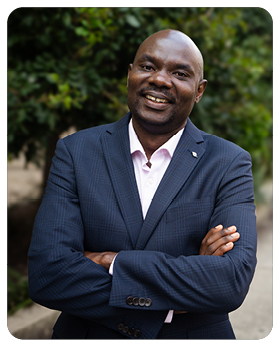Queensland is the skin cancer capital of the world. In a groundbreaking research initiative, Dr. Mathias Seviiri is unravelling the genetic mysteries behind skin cancer treatment responses and risk predictions, with a focus on melanoma and keratinocyte cancer – two prevalent skin cancers that impact thousands of lives in Australia every year.
In recognition of how vital his work is to the future of all Queenslanders, Dr Seviiri has been awarded a Cancer Council Queensland Next Generation Cancer Research Fellowship.
Understanding the research
Melanoma, the deadliest skin cancer, claims the lives of 1,400 Australians annually, emphasising the critical need for early diagnosis and effective treatment. Dr. Seviiri’s work delves into the underlying biology of how the body responds to treatment options, which has shown promising results in advanced melanoma cases.
His goal is to decipher the reasons behind why 60% of patients do not respond to treatment or face adverse events during immunotherapy.
Dr. Seviiri’s research also addresses transplant patients’ unique vulnerability to multiple and invasive skin cancers due to their bodies immune system being suppressed by drugs which stops them rejecting their new organs. Dr. Seviiri has developed genetic tests capable of predicting a person’s future risk of skin cancer. This innovation could revolutionise early detection and prevention.
What this research means for Queenslanders
In Queensland, the UV is 3 and above all year around – even on overcast days. This high exposure to UV radiation increases the chance of getting skin cancers. Dr. Seviiri’s research uses genetic information to personalise treatment plans. His research aims to allocate life-saving treatments to those most likely to respond positively, thereby improving survival rates.
For transplant patients in Queensland, the genetic tests developed in this research could identify individuals at ultra-high risk for multiple skin cancers. This breakthrough has the potential to reshape how we approach cancer prevention, providing a targeted approach to enhance early detection and reduce the cancer risk in those most vulnerable.
The researcher’s journey

Initially drawn to cardiology, Dr Seviiri shifted his focus when Seeing cancer patients firsthand highlighted to him the need for much better survival rates.
“When I joined medical school to become a doctor, I wanted to be a cardiologist. However, my passion for cancer research grew when I started treating cancer patients on the wards,” Dr. Seviiri said.
“I noticed the poor survival from a range of cancers. So, I wanted to find out the drivers of cancer risk, poor survival, and treatment outcomes.”
A Master of Public Health and a research placement at the Cancer Council Victoria paved the way for Dr. Seviiri to become a clinical genetic epidemiologist with a passion for cancer genetics.
The rewarding aspects of his role
Having transitioned from clinician to researcher, Dr. Seviiri finds personal and professional fulfillment in contributing to improving the lives and survival rates of melanoma and transplant patients.
The most rewarding moments come with the realisation that the genetic tools developed through his research have the potential to transform cancer treatment
Dr. Seviiri’s research promises to be a beacon of hope for Queenslanders grappling with the impact of skin cancers. By bridging the gap between genetics and treatment outcomes, his research has the potential to reshape how we deal with skin cancers.
As his research journey continues, we hope that one day soon these discoveries will become transformative treatments and prevention strategies, bringing hope to all those affected by skin cancers in Queensland and around the world.
